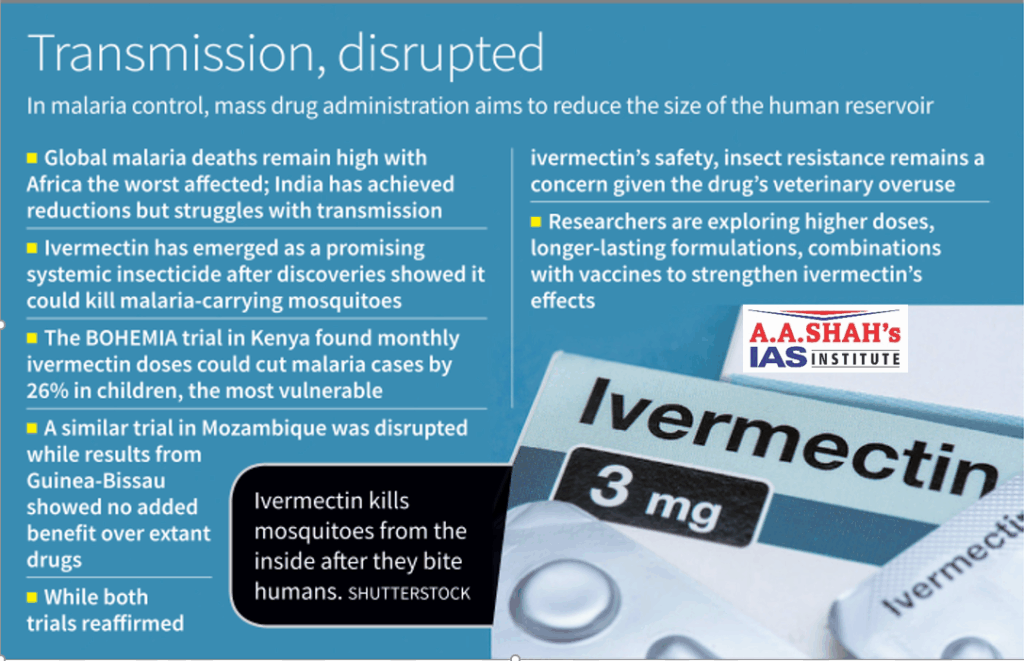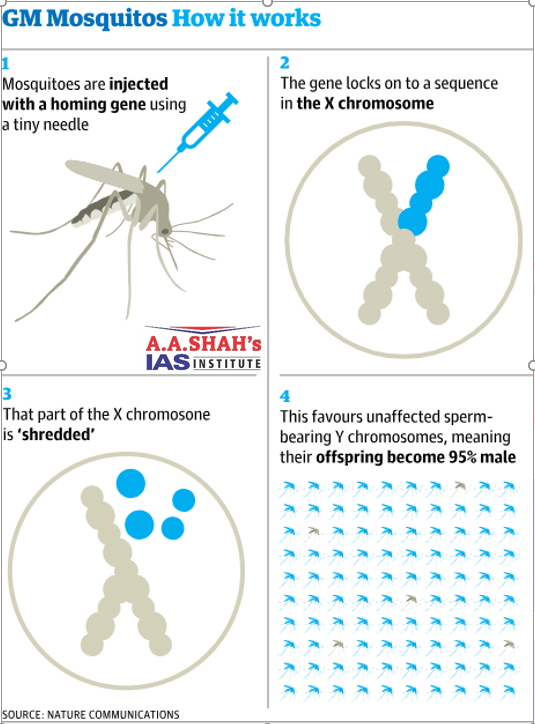Can an ivermectin pill keep malaria from being transmitted?
S&T – HEALTH
28 SEPTEMBER 2025
- In 2023, malaria claimed nearly 6 lakh lives, 95% in the African region.
- In India, malaria cases have dropped by over 80% in the last decade.
- However, some districts in Odisha, Chhattisgarh, Jharkhand, and the Northeast continue to struggle with persistent transmission.
- This lingering threat has revived attention towards the mass administration of endectocides, systemic insecticides that work from inside the human body.
- Of these, ivermectin has reportedly stood out as the most promising.
- Since the 1970s, ivermectin has become a cornerstone of global campaigns against river blindness and lymphatic filariasis.
- A surprising discovery later expanded its potential: mosquitoes that bit people treated with ivermectin often died or didn’t live long enough to spread malaria.
- To test this idea in the real world, scientists launched the BOHEMIA trial in Kenya and Mozambique,
- The result: malaria cases dropped by 26% in the ivermectin group, exceeding the WHO’s threshold to be considered a valuable public health tool.
- As with all widespread interventions, resistance is a looming concern.
- A 2024 review in Parasitology Research highlighted the growing resistance to ivermectin in ectoparasites like ticks, lice, and scabies mites, mostly due to overuse in veterinary medicine.
- To stay ahead, researchers are exploring longer-lasting formulations, higher doses, and combining ivermectin with malaria vaccines or genetically modified mosquitoes.

